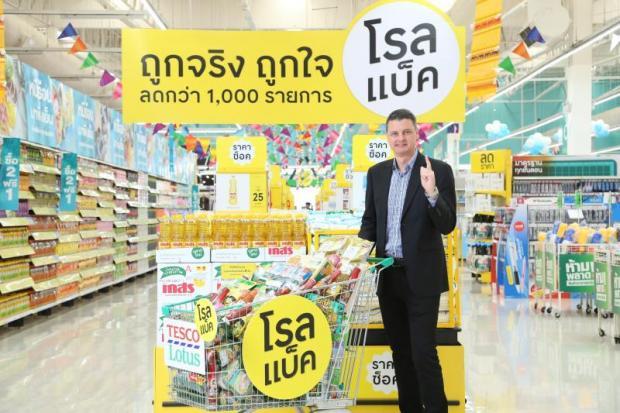Thailand: Tesco reveals ‘historic’ discount campaign
Tesco Lotus Thailand has launched its biggest discount programme ever as sales of fast-moving consumer goods (FMCG) are expected to dip 1% this year — the largest fall in recent history.
Domestic sales of FMCG, including food, increased 1.7-2.6% for retailers between 2014 and 2016. The projected decrease this year is in large part driven by contractions in disposable income and concerns over household debt, according to a study by Kantar WorldPanel released last week.
Grocery sales, a generally stable metric, dropped 0.7% in 2017, the largest fall since 2007.
Tesco puts an annual “price rollback” campaign in place after Chinese New Year. But the rollback this year will be the deepest and widest in the company’s 15 years in Thailand, spanning more than 1,000 items with discounts of up to 40%.
The promotion will cover a wider range of fresh food (over one-fifth of the covered items), in contrast with previous years when the sale focused on dry grocery and non-food products.
“The company will add more products to the campaign throughout the year,” said Mark Roughley, chief marketing officer of Tesco Lotus Thailand. “We guarantee the prices of already-included items will be the same or lower over the next three months.”
The price cuts could amount to 110 baht in savings for the typical family basket and will include a 50% reduction in the fee customers pay to settle utilities bills at the store, he said.
Tesco plans to spend 520 million baht on the rollback during the next three months, but it declined to say how the measure would impact the company’s overall profitability.
The reduced prices will be available across formats, from hypermarkets and Express stores to the online platform, as the company attempts to position its grocery delivery platform to compete against third-party apps like Honestbee and HappyFresh.
This is the first time Tesco’s cost-cutting strategies have been expanded to its Express shops, but the executive said this is a trend the company will observe moving forward.
Consumers’ habits are changing as they switch from weekly visits at large format retailers to more frequent trips to convenience stores or other small-format stores.
Across the market, consumers spend less per visit at small-format retail outlets, but consumers who shop at both Tesco and Tesco Express generally spend more overall, Mr Roughley said. Close to 40% of the chain’s customers are “cross-shoppers”. Kantar expects an increasing number of retailers to engage in aggressive cost-cutting strategies this year.
Mr Roughley denied that the campaign was launched in response to the cost-cutting strategies of competitors. He declined to comment on how the discounts would affect the company’s market share.
“What we found in our research is that price is the most important reason why consumers choose a supermarket. This was purely a response to consumer demand,” Mr Roughley said. “Consumer confidence is down. Customers are worried about consumer product prices, followed by the minimum wage and the political situation.”
According to the company’s January survey, the top three concerns for Tesco customers are product prices (58%), family expenses (51%) and debt (47%).
Consumer confidence fell in February for the first time in seven months. The University of the Thai Chamber of Commerce reported that the indicator dipped to 79.3 from 80 in January. The drop may have stemmed from concerns about commodity prices, political stability and job-replacing technology.
Source: https://www.bangkokpost.com/business/news/1429083/tesco-reveals-historic-discount-campaign


 English
English




